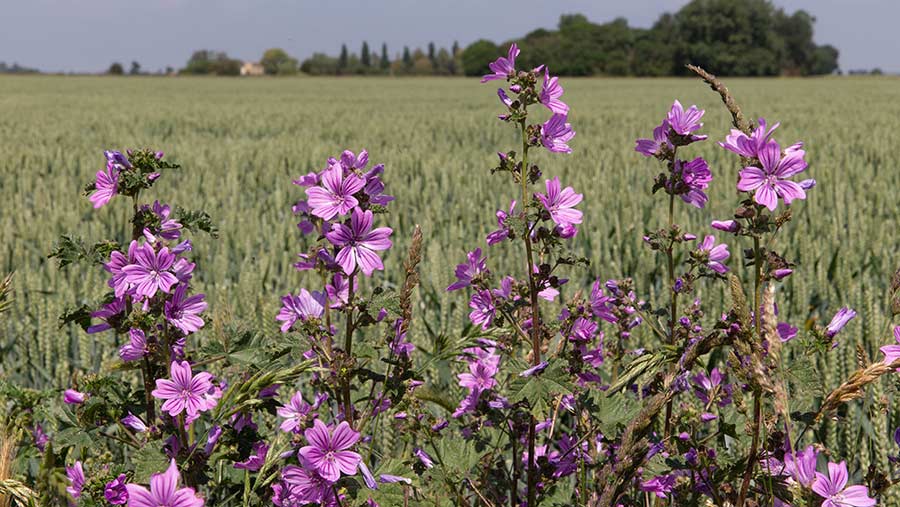Yields not affected by ‘nature-friendly’ approach, says report
 © Tim Scrivener
© Tim Scrivener A decade’s worth of research has revealed that agri-environment schemes do not negatively affect crop yields.
The study, carried out by the UK Centre for Ecology and Hydrology (Ukceh), found that bird and butterfly populations could be significantly increased without damaging food production. The study, which began in 2005, was funded by Defra and took place on a 1,000ha commercial arable farm in Buckinghamshire.
See also: Nature-friendly farming – two farmers show how it’s done
The purpose of the experiment had been to monitor the effectiveness of agri-environmental schemes, to determine whether they can restore biodiversity that has been lost in the UK since the Second World War.
Crucially, the study, which is the longest-running experiment of its kind, found that the number of species increased at Hillesden, the test farm, and were much higher than on comparable nearby farms that did not have any agri-environmental measures in place.
Results were particularly favourable for specific species of birds; the number of blue tits and great tits increased by 73% and 88%, respectively.
Across all species of birds that were monitored, numbers were found to have increased by one-third, and butterfly numbers also doubled.
Yields steady
Meanwhile, a six-year survey of crop harvesting data revealed that overall yields on the farm were maintained and, in some cases, actually improved.
This yield improvement was deemed significant given the loss of farming land that was used to create the habitats.
These losses came from areas that were unprofitable or difficult to farm, making them prime ground to be turned into wildflower meadows for pollinators, with seed-bearing plants for birds and tussocky grass margins for insects and small mammals.
Since the study concluded, the habitats at Hillesden have been maintained and incorporated into a Countryside Stewardship scheme.
“The Hillesden study shows that it is possible to balance wildlife conservation with efficient food production,” said Marek Nowakowski of the Wildlife Farming Company, which was involved in the work. “I am confident other farmers could achieve similar results with the right training and advice.”
Nature Friendly Farming Network chairman Martin Lines said it was positive that the study showed it was possible to farm productively and at the same time reverse the decline in nature.
“We need a balance of biodiversity and output – there is no food security without nature. I hope this is a real incentive for governments across the UK to commit the funding to support farmers to increase biodiversity, which in turn increases food security and food production for the future.”
